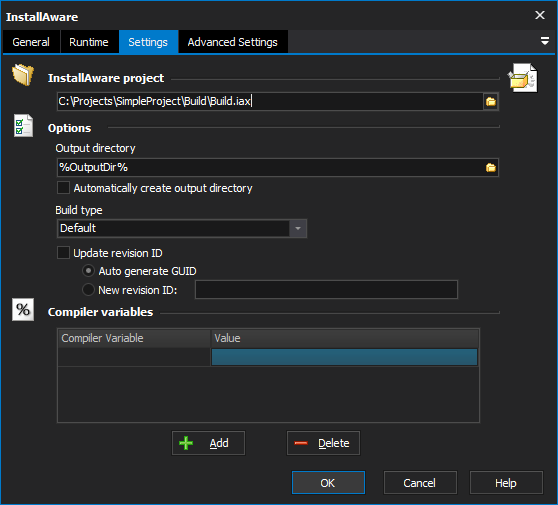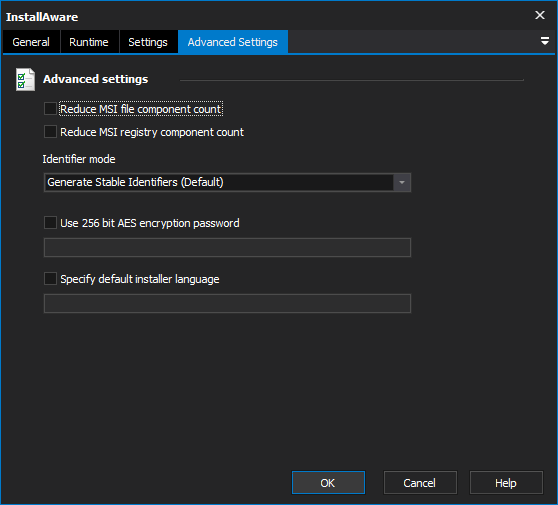InstallAware Action
The InstallAware action enables you to automate the process of building InstallAware installations.
The InstallAware product family provides a complete set of installation authoring tools and environments targeting Microsoft Windows and Microsoft .NET platforms
Settings

InstallAware Project
Options
Output directory
Automatically create output directory
Build type
Update revision ID
This will modify the InstallAware project file with a new Revision ID. The revision ID uniquely identifies the setup to Windows Installer. Each revision should have a new Revision ID otherwise Windows Installer will attempt to do a Repair/Remove instead of uninstalling an old build and then running the new build.
Auto Generate GUID
FinalBuilder will automatically generate a new GUID for the RevisionID each time the action runs.
New Revision ID
Specify the new Revision ID that you want this version to have.
Compiler variables
Compiler variable
Value
Advanced Settings
The Advanced Settings page allows you to specify additional details about the build of your InstallAware package.

Advanced Settings
Reduce MSI File Component Count
Enabling this option allows InstallAware to group multiple files inside a single MSI component, this will improve installer performance.
Reduce MSI Registry Component Count
Enabling this option allows InstallAware to group multiple registry values into a single MSI component, this will improve installer performance.
Identifier Mode
The Identifier Mode option allows you to specify how InstallAware generates MSI code statement identifiers. There are three options available:
Generate Stable Identifiers- This is the default mode. A stable statement identifier is generated for each line of script which results in unique MSI Code statements. There is a performance cost to build the installer package when using this option, however runtime performance is not affected.
Use Dynamic Identifiers - Using this options will improve the build speed of your setup project. The InstallAware compiler will not attempt to generate unique statement identifiers, this may result in problems with patching and may break Web Media Block reuse.
Blend- This setting provides a combination of the previous two settings. A unique statement identifier for each statement that is associated with a source file, however all other statements, unstable identifiers will be used.
Use 256 bit AES Encryption Password
Use this option to encrypt your compressed setup packages with 256 bit AES encryption. This will encrypt both the setup files and the included data files.
Specify Default Installer Language
This option allows you to specify the default language for the installer package that is created.